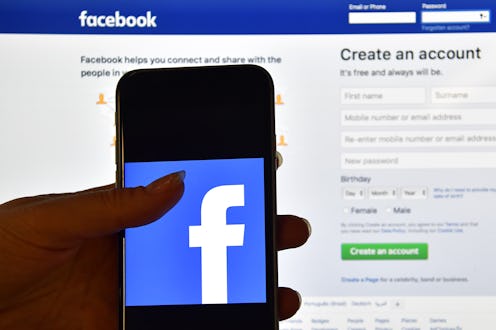News
Bad News For Politicians Who Block Their Critics On Social Media: It’s Unconstitutional

If you're an elected official, blocking your critics on social media could lead to some serious legal trouble from now on. On Monday, a federal appeals court in Virginia ruled that politicians cannot block critics on social media networks.
All three judges in the 4th U.S. Circuit Court of Appeals ruling determined that a Virginian official violated the Constitution by blocking a man from her Facebook page for 12 hours in 2016. According to Reuters, Phyllis Randall, who is the chair of the Loudoun County Board of Supervisors, blocked Brian Davison from her "Chair Phyllis J. Randall" page after a town hall meeting.
According to the report, Davison, who The Washington Post described as a "community activist," used a Facebook profile under the name of "Virginia SGP" to comment on a post by Randall. Davison accused the Loudoun County Board of Supervisors of corruption (which Randall called "slanderous"), ultimately leading to Randall removing her original post along with Davison's comments and stripping his access to her page.
Randall reportedly argued that her Facebook page was meant for a private audience only. But judge James Wynn, who wrote the opinion for the ruling, rejected her claim and said that her profile's "interactive component" made it a public page. He wrote that she discriminated against Davison's point of view by banning him from her page. According to Reuters, Wynn noted that Davison's speech "occupies the core of the protection afforded by the First Amendment."
While this ruling specifically pertains to a Virginian matter, it could have broader implications for elected politicians across the country, including President Donald Trump. Trump became the focal point of a ruling in May 2018 when U.S. District Court Judge Naomi Reice Buchwald ruled that he could not block his critics on social media.
In similar sentiment to the 4th U.S. Circuit Court of Appeals, Buchwald ruled that citizens were protected by the First Amendment. On social media networks, Buchwald ruled, citizens were allowed to exercise their right to free speech just like they would be able to in public spaces, like when a politician holds a town hall meeting.
In her opinion, Buchwald wrote, "[N]o government official — including the President — is above the law and and all government officials are presumed to follow the law as has been declared."
In response, Trump appealed Buchwald's ruling and requested the 2nd U.S. Circuit Court of Appeals in Manhattan to overturn it. The Department of Justice represented Trump and said that Buchwald's ruling was "fundamentally misconceived."
The case involving Randall and Davison in Virginia also points to how social media essentially acts like a public space for many of its users. In comments to The Post, Joshua Geltzer, who is the director of the Georgetown Law’s Institute for Constitutional Advocacy and Protection, spoke of how politicians use social media to ramp up public engagement.
"A platform has been created," Geltzer told the newspaper, "in which the government can’t allow the voices it likes and silence the ones it doesn’t like."